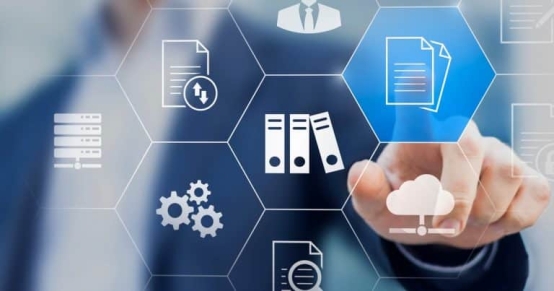Boosting Operational Efficiency with the Right Property Management Software
Property management software (PMS) has become an essential tool for businesses looking to streamline their daily operations. These platforms support a wide range of tasks—from scheduling and tenant communication to rent collection and accounting—by automating repetitive processes and centralising data in one accessible system.
Property management software (PMS) has become an essential tool for businesses looking to streamline their daily operations. These platforms support a wide range of tasks—from scheduling and tenant communication to rent collection and accounting—by automating repetitive processes and centralising data in one accessible system.

As companies increasingly shift away from manual, multitasked workflows that are prone to error, PMS solutions have gained traction for their ability to improve accuracy, save time, and reduce labour-intensive tasks. Acting as digital hubs, these systems simplify how property managers organise data and manage tasks, ultimately enhancing productivity.
How to Choose the Ideal Property Management Software
Selecting the right PMS requires a thoughtful evaluation of features, business goals, and long-term usability. Here are several key considerations to guide your decision-making process:
Identify Your Business Needs First
Before committing to a software purchase and its implementation costs, it’s important to define your property management requirements. Ask yourself:
- Do you need to manage leases, process rent payments, track maintenance, or oversee finances?
- Are you managing residential, commercial, or mixed-use properties?
- Is scalability a priority as your portfolio grows?
Clear answers to these questions will help narrow down the right solution—one that aligns with your workflows and scales with your operation.
Evaluate Data Protection Capabilities
One of the primary drivers behind adopting PMS is improved data security. With sensitive data like tenant records, financial details, and maintenance histories at stake, robust protection measures are non-negotiable. Look for:
- End-to-end encryption
- Regular automated backups
- Multi-factor authentication
- User role-based access controls
Reliable property management software should ensure compliance with privacy standards while safeguarding both business and client information.
Look for Streamlined Billing and Invoice Handling
Industries such as hospitality benefit immensely from PMS tools that can process frequent, high-volume transactions. For instance, hotels can automate billing and payment collection, reducing front-desk workloads and human errors. A clean, user-friendly billing interface is key—if it's overly complex or slows down processes, the tool may not be worth the investment.
Choose Software That’s Easy to Set Up and Use
Fast deployment is a common requirement. A PMS solution should integrate smoothly with existing systems and be ready for use without requiring extensive setup or training. A well-designed, intuitive interface makes it easier for different departments (like front desk, accounting, and maintenance teams) to adopt the system quickly, thereby improving efficiency across the board.
Key Features to Look for in Property Management Software
Modern PMS tools come equipped with versatile functionalities that support comprehensive property oversight. Common features include:
Rent Collection Management
PMS platforms allow landlords and managers to automate rent tracking, notify tenants of due dates, and maintain clear records of incoming and overdue payments.
Enhanced Tenant Communication
Automated alerts for lease renewals, upcoming payments, or scheduled maintenance ensure better tenant engagement and more timely responses to important events.
Financial Oversight
Built-in accounting tools help users generate financial reports, maintain ledgers, reconcile transactions, and manage budgets with ease, all from one platform.
Custom PMS Development Costs
Building a tailored commercial property management system can cost anywhere between $40,000 and $250,000, depending on:
- Scope and complexity of features
- Quality of the user interface and user experience
- Chosen technology stack
- Geographical location and hourly rate of the development team
While the initial investment can be substantial, custom solutions offer the flexibility to adapt precisely to a business’s operational needs.
Popular Property Management Software Platforms
Several well-known property management systems are widely adopted by professionals in real estate, hospitality, and residential leasing. These include:
- Rent Manager – Offers flexible tools for handling everything from leasing to accounting
- Guesty – Specialises in short-term rental management and booking integration
- Rentec Direct – A user-friendly option for landlords and property managers
- PayHOA – Tailored for homeowners’ associations and community management
- TenantCloud – A cloud-based system ideal for smaller property portfolios
- Buildium – A full-featured PMS for residential and association property management
These platforms help automate tenant interactions, streamline rent processing, maintain property records, and manage maintenance tasks effectively.
Final Thoughts
Choosing the right property management software is critical for streamlining operations, improving data security, and boosting productivity. By understanding your specific needs and focusing on essential features like billing automation, ease of use, and robust security, you can invest in a solution that not only meets today’s demands but also supports long-term growth.